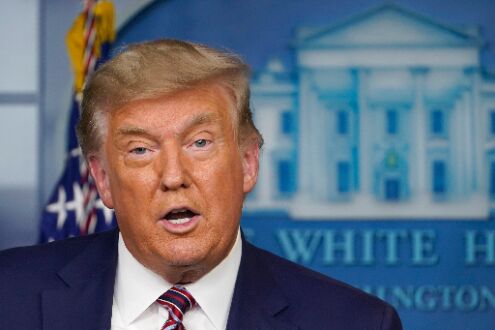Whirlwind

In the twilight days of the Trump presidency, it appears as if the Republican Party at large is finally coming to terms with the cost of allying with a populist political outsider. Just a few short days before the January 6 Congressional vote to certify the US Electoral College vote, Senator John Hawley of Missouri became the first Republican to vow to challenge the certification process of the Electoral College votes. This is significant for two reasons. First, even a single objection cast in the House and the Senate can turn the formality of confirming votes that have already been cast into a long drawn process of debate. Till now, only House Republicans have made assertions of opposing the vote while Senate Republicans have largely chosen to remain silent or vowed to certify the vote. To dismiss the electoral votes of even one state, the motion must pass both houses with a majority, an impossible task given that the Democrats hold a majority in the House. Hawley has expressed confidence that he will have more support soon enough that will allow him to strengthen his challenge. Regardless of who may or may not support Hawley, top Senate Republicans including Mitch McConnell to admonish Hawley on a recent conference call. The call, which was reported on by Axios, was a way for McConnell to unambiguously declare that the upcoming vote would be a 'vote of conscience' to prevent the President from overturning his undeniable loss. Calling the vote "the most consequential one of his life", he castigated Hawley for his actions while asking him repeatedly what he hoped to achieve. While it later turned out that Hawley was not on the conference call, McConnell and many of his Senate colleagues are furious with him for setting the stage for a forced confrontation between Trump and the Republicans who don't support his blatantly undemocratic grab for power. In many ways, this is the latest incident of several where Senate Republicans are increasingly distancing themselves from Trump though he still has a group of lackey loyalists in the House.
Trump has taken to personally attacking McConnell and the Republicans who are not giving him loyalty at such a time while threatening them with consequences. The rift began when McConnell formally acknowledged Biden as the President-elect. It widened when he was involved in efforts to strike down Trump's veto of the defence bill. Then, Mitch was also central in the Republican effort to vote down a combined Trump and Democrat demand to increase the stimulus payments to Americans from USD 600 to USD 2.000. Trump's showdown with the Senate Republicans is a case of bad timing as it comes ahead of crucial Georgia state elections which will end up deciding who holds control of the Senate. For Trump's populist base, his message demonising Senate Republicans for not following his line could have devastating consequences for the party. Coming at the tail end of his term, this is but one of many similar erratic and problematic acts that Trump has committed in recent times. In as much a break from standard as possible, Trump has decided to spend his last weeks plotting a series of truly chaotic decisions. Aside from authorising three disputed and troubling executions just before Biden's term in office begins, Trump has also gone on a pardoning spree that has alarmed many in how brazen they are. Trump has pardoned formers followers of his who were indicted by Robert Mueller's Russia investigation including Roger Stone and Paul Mannafort. Both were guilty of lying to Congress regarding the Russia connection of the Trump campaign. He also pardoned several Congressman and businessman accused of which Jared Kushner's father, Charles Kushner was particularly prominent. Also controversial was Trump pardoning four former members of the private military company that was previously known as Blackwater. The members he pardoned had been involved in the massacre of 17 Iraqi civilians in 2007, crimes for which Congress unanimously wanted them punished. The troublingly arbitrary nature of his pardons aside, there is much to truly be worried about in the context of American democracy. Trump has pardoned many of the members of his team who were willing to lie to Congress for his purposes. This is a possible set up for the next round of Trump pardons that ay well include pre-emptive pardons for his family and, most problematically, himself. As of now, many petitioners are appealing to the White House for pardons to shelter them for lawsuits they are certain will follow after Trump's exit. In the midst of all this, there are even reports of the Department of Justice investigating a potential bribery for pardon case. While Presidental pardons have occasionally been problematic in the past as well, Trump issuing such blatantly self-serving pardons would set an ill-precedent for future administrations. Most commentators expect that Trump will pardon himself, his family and close followers in the weeks before January 20 when his defeat to Joe Biden is set in stone with the January 6 vote. In the meanwhile, he continues to sow chaos with fresh reports that Trump may be ramping up confrontation with Iran in the leadup to the one year anniversary of the Suleimani assassination.



